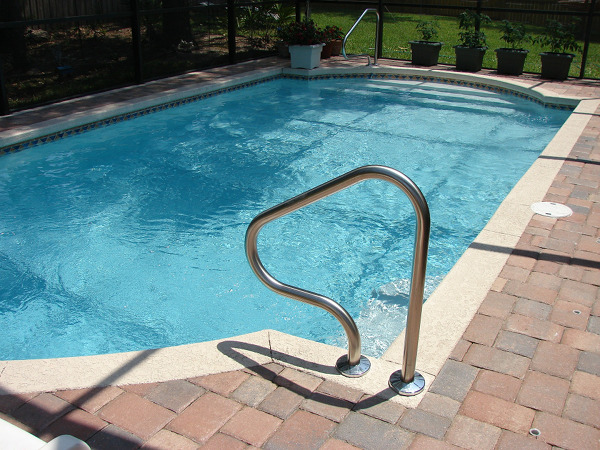
Reviewed by Andrada Simion, Master of Science in Chemistry
- One of the simplest ways to resolve a chlorine lock is to drain, refill, and then test your pool (repeat the process if necessary)
- Have the accurate levels of free chlorine, combined chlorine or chloramines and total chlorine before you begin shocking.
- Only shock your swimming pool if the level of chloramines is 0.5 or higher.
- Only use a chlorinated shock if the levels of total chlorine are low, if high use a non-chlorinated shock.
- You should shock until the water becomes clear and the visible algae disappear.
- For pool shocking to be successful, you need to reach a true breakpoint chlorination level
- To achieve the breakpoint chlorination level, you need to increase free chlorine levels 10 times that of chloramines.
- Use a FAS-DPD test kit to know the levels of free chlorine; add the required amount to reach the free chlorine count needed to achieve the breakpoint chlorination level.
- Have your calculations right otherwise it may be hard to break the high demand for chlorine.
- Ensure that chemicals levels are consistent—chemical imbalances cause the breeding of bacteria which interferes with the efficiency of sanitizers.
- Always follow the dosing instructions of the chemicals you’re using.
- Since phosphates contaminate the sanitizer, do a test for phosphates and if positive, treat with phosphate remover chemicals.
- Have accurate cyanuric levels; accurate cyanuric acid measurements help to know the amount you need to effectively sanitize the pool.
- Control CYA levels—too much or too little cyanuric acid increases chloramines (the ideal cyanuric acid level is 30-50 ppm)
- Regularly brush off algae from your pool.
- Cleaning your filter regularly removes organic material that usually increases chloramines.
- Make a habit of skimming leaves and debris off your swimming pool.
- Control the pH levels to increase the chemical’s efficiency in sanitizing your pool.
- Limit the pH levels to 7.2 to 7.4 when shocking—high pH levels lower the sanitizer’s effectiveness.
- You may need to shock regularly during the peak swimming seasons.
- Always shock your swimming pool during and after the summer season.
- Always shock during or after a period of excessive rain as it throws the pH levels off balance.
- It’s recommended shocking at night as the sun makes the sanitizer evaporate out of the pool during the day.
- Always shock after a party; a large number of swimmers may put a strain on the sanitizer in your swimming pool.
- Use a conditioner or a stabilizer to protect the chemical’s level from the sun; this will also prevent overworking the salt cell.
- Ensuring there’s enough stabilizer or conditioner may help increase free chlorine levels
- It’s advisable to use granulated chlorine instead of the liquid one as it’s much stronger.
- Always go for non-stabilized granulated chlorine; a non-stabilized one provides a quick and high concentration, killing off harmful bacteria.
- Ensure there’s enough salt in the chlorinator, usually salt should sit around 5000 ppm.
- Don’t overwork the salt cell; only maintain the chemical levels needed to keep your pool sanitized.
- Replace your chlorinator if you suspect it’s not performing well or it has reached its life span.
- Check your salt levels as they affect chlorinator’s effectiveness which, in turn, increases chloramine levels in your pool
- Clean your salt cell in a hydrochloric acid bath; avoid soaking it in the acid for too long to prevent damaging it.
- Inspect and replace your salt cell if necessary; a salt cell usually has a shelf life of 3 to 6 years.